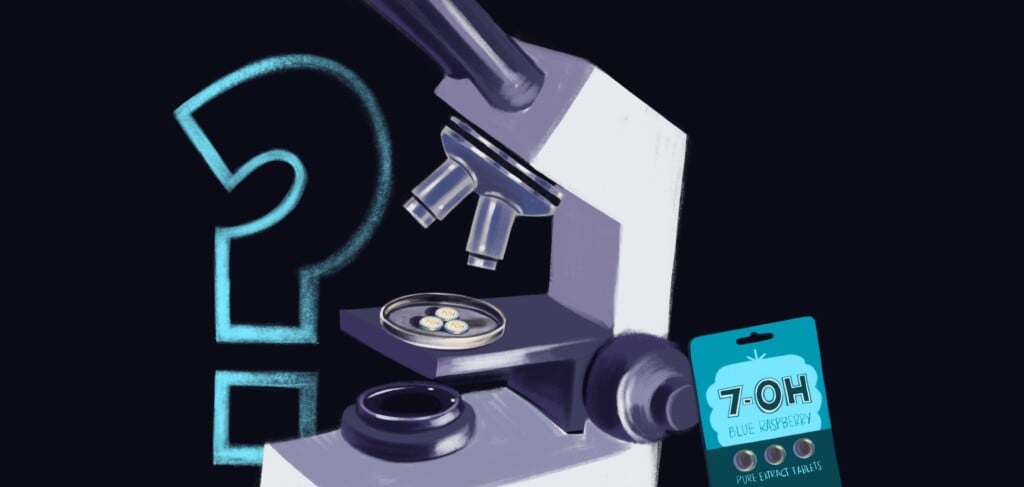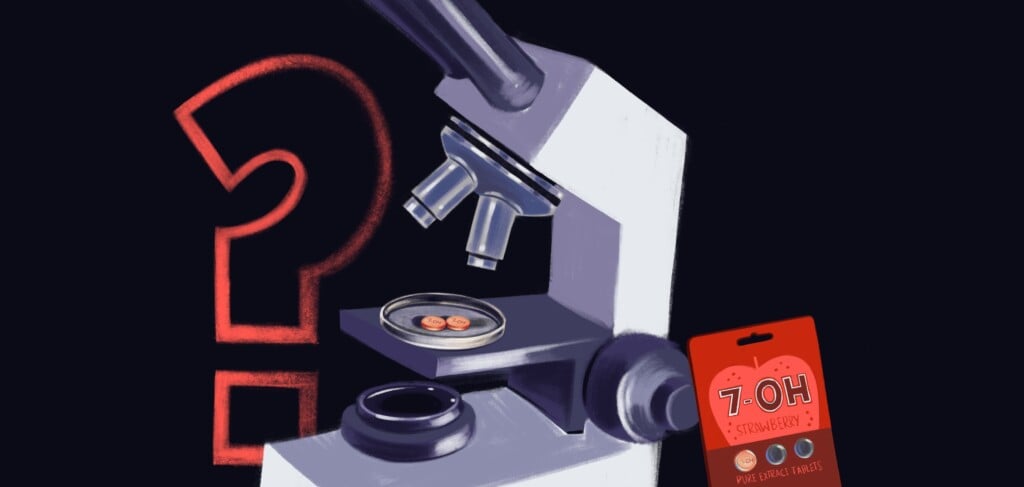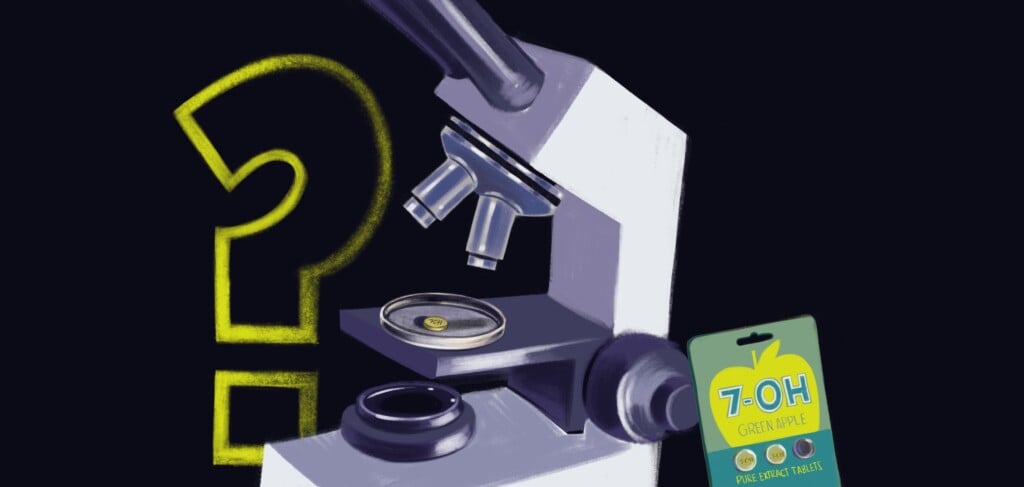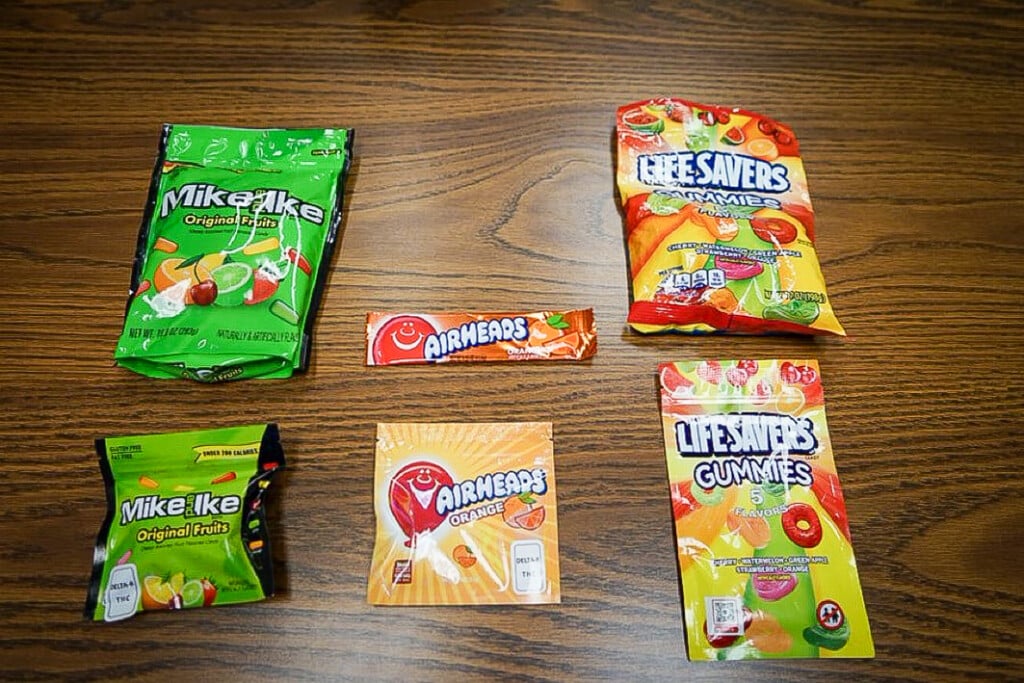Kilroy Was Here
Sad but true: The most passionate response to any music at America’s Pub on March 27, the first night of Club Wars, came between sets, when a Metallica tune boomed through the speakers. After a few more selections from KQRC 98.9, which was broadcasting outside, the din died down and event promoter Jim Kilroy presented the evening’s second act. “These dudes, or three dudes and one babe, are Substance,” Kilroy said, noting the group’s female bassist in a less-than-politically correct manner. (Kilroy also once described himself as “an admitted vaginaterian” in his local-rock-themed zine Banzai.)
Wearing a Kansas Jayhawks jersey bearing the name of lane-clogging troglodyte Greg Ostertag, the Substance vocalist showcased his stamina, holding grungy notes so long that even audience members gasped for breath. The band’s guitarist posed as if his solos were being broadcast to all of America instead of the sparse crowd at the Pub that bears the country’s name. The group’s confident gestures and enthusiastic following might have swayed judges at a typical battle of the bands, but Club Wars is more like a grade-school candy raffle.
Inspired by elements of last fall’s spectacularly unsuccessful Tournament of Rock, Kilroy started working on Club Wars in January. Aided by Soulless guitarist Tony Torres, Kilroy created a Web site (clubwars.net) to promote the event, his first Internet involvement in the fifteen years he’s been booking area shows. He added a novel twist to the competitive format, which usually involves a panel of judges or an applause-meter. Kilroy gave each band coupons printed with unique numbers. In addition to granting the holder a $1 discount off the cover price, this magic ticket acts as a vote for the musicians who sell it. The top seven sellers advance to the Wars’ postseason.
From Kilroy’s perspective, it was a clever solution. “I didn’t want to go through the effort of having judges at each show,” he reasons. Plus, Kilroy gets no-cost help in the promotional department. The bands, motivated by free recording time and a $500 gift certificate at Guitar Source, figure to lobby for attendance.
After the acts advance, Kilroy will switch back to the judging format, with another twist. “People will be given wristbands if they show up before the concerts start. If they’re still there at the end, they get to vote. That’s the vote of the people.”
The votes of the musicians involved are still too close to call.
“This format rewards the bands that market themselves best to the most people,” Recliner bassist Mark Cuthbertson says. “The early-round format gives an edge to established bands who have done some legwork promoting and marketing themselves, and I see nothing wrong with that.”
Cuthbertson still supports the format, though it might not have served his angular indie-rock outfit especially well. Recliner took the stage before 10 p.m., serenading a solitary dancing fan. The group’s ambitious sounds earned polite applause — but few knowing nods — from the dance floor’s thin lining of onlookers, suggesting that Recliner hadn’t exhausted its allotment of buck-off coupons. Still, the former Q frontman says he’s not in it for the big bucks or the Banzai cover shots (another perk of winning the Wars).
“About 100 people heard us who normally wouldn’t have,” he says. “We played a great-sounding rock venue in KC and earned some cash.”
Audio Kombat Arsenal singer Joe Spiller, whose group plays its first Club Wars show at the Hurricane on April 15, remains unsure about Kilroy’s plan. But he’s taking it seriously. “We will not give out any of our tickets until two days before the show, with confirmations only,” he vows. “If this is how it is judged, we leave no room for error.”
Even Kilroy’s detractors have to admit that Club Wars betters Tournament of Rock and other pay-to-play schemes of recent years. Under Kilroy’s rules, bands receive payment even in the early rounds based on how many tickets they’ve sold, as opposed to top-heavy battles where the winners cash in while the majority of the groups never see a dollar.
Some disgruntled participants in previous battles maintain that with Kilroy in charge, even the winners never collected prizes. On March 19, Kilroy posted this simple statement on thezone.org’s discussion forum, a spot frequented by local musicians: “The battle of the bands called Club Wars starts on March 27.” The response was quick and brutal, as it has been whenever Kilroy’s name has appeared on the site. “Instead of creating animosity between bands by attempting to pit them in battle against one another, why don’t you use your superior skills to book bands for local shows?” queried one “Juan Vergo.”
“A battle of the bands makes it more exciting,” Kilroy answers, claiming that noncompetitive shows at America’s Pub attract smaller crowds. “You have to come up with something like this to give you a different angle. Otherwise, you go to promote shows, and they don’t go so good, and then people start feeling like I ripped them off.”
That leads to the more serious accusations on the Zone forum. “It’s a wonder someone hasn’t taken a baseball bat to this guy’s head,” opines one poster. “Why doesn’t Big Jim put on a Battle FOR the bands, and have everyone he’s ever ripped off play. Whoever wins gets to finally kick the living shit out of him.”
“It’s somewhat true,” Kilroy admits with surprising candor. “I’m not going to say that I’ve never ripped anybody off. People got screwed; it happens.” However, he does point out that sometimes, appearances can be deceiving. “A crowd can show up, and it looks like a lot of people, but that doesn’t mean that the show really made any money,” he explains.
With his ageless surfer-dude looks, unironic enjoyment of schlock-rock and hair-metal groups and immodest publicity stunts, Kilroy makes an easy target. Yet if he were as dishonest as his harshest critics claim, logic suggests he would either have skipped town with a bulging cartoon money sack like Tournament of Rock promoter Terry Nelson or gotten himself blacklisted from the area music community years ago. Instead, he’s still booking shows and talking up local bands.
“Jim Kilroy has been good for local music,” asserts John Doom, guitarist for Club Wars contender the Electra Complex, which plays at Niener’s on April 13. “Name anyone who has cared enough to stick around that long and support live music.”
“He is a hard-working kind of guy who is helpful and insightful to local bands,” concurs Eric Clay, guitarist for Electronic Orange Creme.
About seven months ago, musicians tossed around the same kind of adjectives to describe Nelson. Doubters have their “I told you so”s cocked and loaded, but Kilroy offers this karmic comeback: “If what goes around comes around, then I don’t feel that I’ve really been fucked hard.” However, with 29 bands and five venues involved in this production, the stakes are now much higher.




